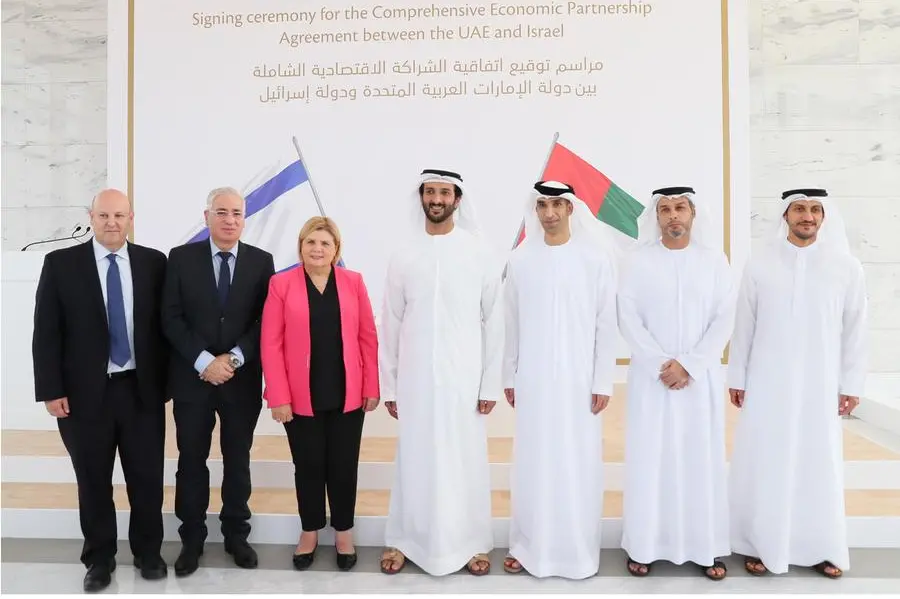PHOTO
Abu Dhabi, UAE – The UAE-Israel Comprehensive Economic Partnership Agreement, which was signed on May 31, 2022, will come into effect on April 1, 2023. This means that tariffs will be removed or reduced on more than 96 percent of product lines, which covers 99 percent of the current value of traded goods between the UAE and Israel.
The UAE-Israel CEPA is now the second of the UAE’s new foreign-trade deals to be ratified following the successful roll out of the UAE-India CEPA in May 2022. In addition to the new tariff structures, the agreement with Israel removes unnecessary barriers to trade, improves market access for services suppliers, opens opportunities in government procurement, provides a platform for SMEs to expand internationally, establishes parameters for digital trade, protects intellectual property, and creates transparent trade remedy mechanisms.
The CEPA is designed to push UAE-Israel non-oil bilateral trade from the US$1.3 billion recorded in 2021 to US$10 billion by the end of the decade. In 2022, bilateral non-oil trade reached US$2.49 billion, a 90 percent increase on 2021’s total, with re-exports from Israel growing 71.2 percent and non-oil exports to Israel climbing 48.6 percent.
The full details of the new tariff structures, rules of origin eligibility, as well as information market access conditions for services suppliers, is now available on the Ministry of Economy’s website: www.moec.gov.ae/en/cepa_israel
Businesses, exporters or agencies are invited to direct specific queries on the terms of the deal to a panel of expert CEPA advisors on e-mail at: CEPA@economy.ae
The UAE-Israel CEPA is a part of the UAE’s new trade agenda and efforts to double the size of economy from AED1.4 trillion to AED3 trillion by 2030. The UAE has now concluded CEPAs with India, Israel, Indonesia, Türkiye and Georgia.
-Ends-




















